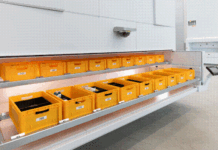Whether you’re relocating, traveling, or sending something fragile through the mail, packing valuable items the right way is critical. These items—such as jewelry, documents, electronics, and antiques—can be both financially and emotionally irreplaceable. To ensure they arrive safely at their destination, you need more than just a cardboard box and tape. Here’s a practical guide on how to handle packing valuable items with care and confidence.
1. Know What Counts as Valuable
Before you start packing valuable items, make a list of what you consider valuable. This could include:
- Jewelry and expensive watches
- Electronics like laptops, tablets, and cameras
- Artwork, antiques, and collectibles
- Important legal or financial documents
- Sentimental heirlooms
Take photos of each item and create an inventory. This helps with both organization and insurance, in case anything goes wrong.
2. Invest in the Right Packing Materials
When packing valuable items, the materials you use make all the difference. Cheap or inadequate packing supplies can easily lead to damage. Use:
- Sturdy, double-walled boxes
- Bubble wrap or foam sheets for cushioning
- Packing paper for wrapping surfaces
- Anti-static bags for electronics
- Plastic sleeves or waterproof pouches for documents
- Tamper-evident tape for sealing
Avoid newspaper, as the ink can stain delicate items. Always choose clean, dry, and high-quality materials when packing valuable items.
3. Use Proper Packing Techniques
Different items require different methods when it comes to packing valuable items:
- Jewelry: Wrap pieces individually in soft cloth or pouches to prevent tangling or scratching.
- Electronics: If possible, use original boxes. Otherwise, wrap each item in anti-static material and add layers of cushioning.
- Artwork or antiques: Wrap in acid-free paper, use corner protectors, and place in custom-fit boxes.
- Documents: Keep them flat in waterproof envelopes or fire-resistant folders.
Make sure items are tightly packed so they don’t move around during transit. Label boxes as Fragile, but don’t write “Valuables” on the outside to avoid attracting attention.
4. Keep Essentials With You
If you’re moving or flying, consider packing valuable items in your carry-on or personal bag. Items like passports, jewelry, and small electronics are safer with you than in checked luggage or moving trucks.
5. Don’t Skip Insurance and Tracking
One of the most overlooked steps in packing valuable items is ensuring proper coverage. Check your home or travel insurance to see if valuables are protected during transit. If not, buy additional coverage.
If you’re shipping items, always use a trusted courier with tracking, signature confirmation, and insurance.
6. Consider Professional Help
For high-value or especially fragile items, hiring professionals who specialize in packing valuable items can be a wise investment. They have the tools, materials, and experience to reduce the risk of damage.
Conclusion
Packing valuable items requires attention to detail, the right materials, and smart handling. Whether you’re shipping a rare collectible or moving your grandmother’s heirloom vase, taking the time to do it properly can save you stress, money, and heartbreak. Protect what matters most by being careful, prepared, and proactive every step of the way.





